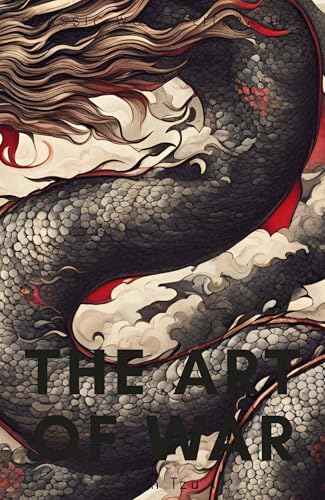The Art of War/The Book Of Lord Shang (Wordsworth Classics of World Literature)
Sun-tzu; Shang Yang
BOOK REVIEW

In the world of strategy and power dynamics, The Art of War by Sun-tzu emerges not just as a military manual but as a life-altering manifesto. This ancient text has transcended centuries, penetrating the realms of politics, business, and even personal relationships. The profound insights and adaptable wisdom it offers compel us to rethink how we navigate conflict and competition in both grand and mundane arenas.
Written over 2,500 years ago, Sun-tzu's teachings emerge from a time when the balance of power was precarious, and warfare was a matter of life or death. The beauty of The Art of War lies in its ability to condense complex strategies into succinct principles, urging readers to consider not just the tactics of battle but the psychology of both oneself and the opponent. This is a text that puts you right in the thick of ancient Chinese warfare, gripping you with its practical wisdom and nearly prophetic insights.
Shang Yang's contribution in the second part, The Book of Lord Shang, emphasizes legalism in governance, adding another layer to the discussion of power and control. The intertwining of these two iconic works serves to deepen our understanding of authority and statecraft, while simultaneously questioning moral frameworks we often take for granted. Readers wrestle with the unsettling balance of ethical considerations in pursuit of victory. Are the ruthless strategies critiqued by modern readers overly harsh, or do they reflect an unvarnished truth about human nature and competition?
The dialogues that ensue in the literary community are as fierce as the battles described within these texts. Critics frequently debate whether The Art of War is still relevant in today's world dominated by diplomacy and digital conflicts. Some argue that its principles of deception, positioning, and indirect engagement can be found in modern business strategies and political maneuvers, while others dismiss it as antiquated, arguing that our age requires transparency and cooperation. "It's just an old book!" some say, but those who delve deeper discover a treasure trove of timeless wisdom. Would you have the audacity to dismiss the insights that have guided leaders like Mao Zedong and Nelson Mandela?
The reader reviews echo this passionate discourse, with many expressing awe at the text's applicability across diverse fields. One reader remarked how Sun-tzu's teachings on "winning without fighting" changed their approach to workplace conflicts, transforming communication dynamics into something far less aggressive yet profoundly effective. Another shared a revelation sparked by Lord Shang's uncompromising stance: "Sometimes strength comes from the unyielding rules we set for ourselves and others."
The historical context enriching these texts is not merely background; it's the very heart of their power. Travel back to a time when the stakes of war were monumental and where a single strategy could change the fate of nations. This fervent atmosphere births a timeless appeal, urging contemporary readers to consider the enduring nature of power struggles and the choices that define leadership.
The implications of The Art of War and The Book of Lord Shang extend far beyond the dusty pages of history; they challenge us to confront the often uncomfortable truths about ambition, strategy, and governance. Each principle can be interpreted as a mirror reflecting our innermost desires for success and influence, calling into question the moral compass we use while striving for achievement.
It's undeniable that reading these works is embarking on an intellectual armament course. You find yourself unsettled yet exhilarated, catapulting your consciousness into realms of thought that you might have previously ignored. As you flip through the pages, can you resist pondering how these age-old teachings resonate with your own life, your battles-both internal and external?
The compelling pull of The Art of War/The Book of Lord Shang is not just in the strategies laid out but in the raw, visceral emotions they evoke. They beckon you toward self-discovery amid conflict and power, creating a compelling narrative that lives on in the minds of its readers. After all, who can truly afford to ignore the insights of a text that has withstood the ravages of time, continuously challenging, inspiring, and reshaping the world around us?
📖 The Art of War/The Book Of Lord Shang (Wordsworth Classics of World Literature)
✍ by Sun-tzu; Shang Yang
🧾 256 pages
1998
#warthe #book #lord #shang #wordsworth #classics #world #literature #Suntzu #shang #yang #ShangYang